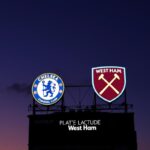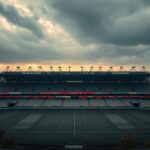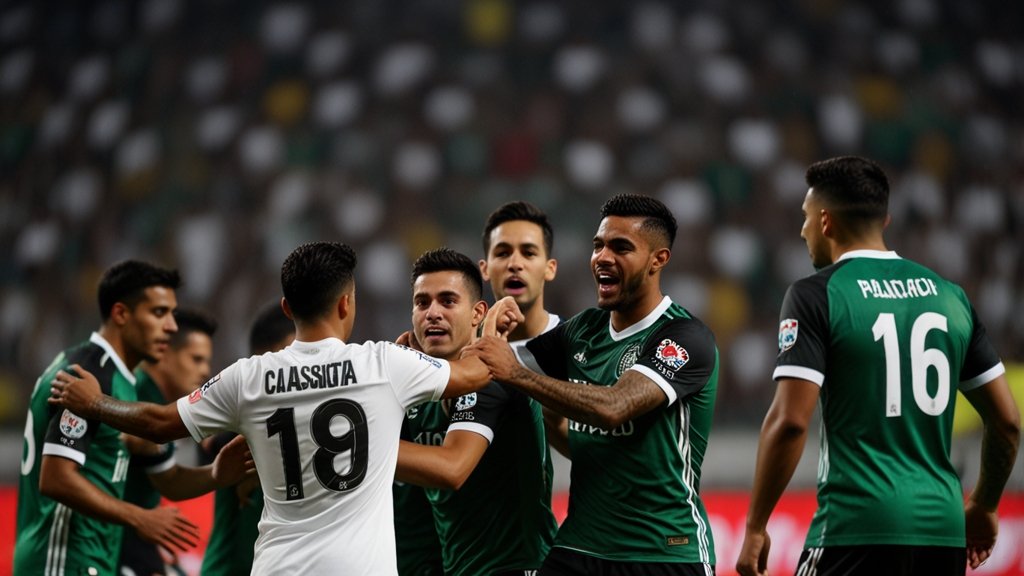The fiery duel of the brothers Paulistas, Corinthians, and Palmeiras ended as a draw between the two, with two goals scored on each side. A VAR video showed the ref giving a penalty after a marginal offside by Yuri Alberto in the 89th minute, but it was later overturned. Because of this incident, the home side, which Neo Química Arena, lost control with 47,000 fans. The game included four goals, three red cards, and several pitch invasions by angry spectators.
Palmeiras opened the score with a goal by Endrick’s header, but Corinthians equalized with Roger Guedes’ volley. Raphael Veiga scored the second goal for Palmeiras on the free-kick which was quickly canceled out by Róger Guedes. The situation escalated when Palmeiras’ Gustavo Gómez fouled Fagner, which led to a brawl involving 10 players.
It was the referee Wilton Sampaio who made an unusual record of 12 yellow cards in another record-breaking game. Throwing flares on the field and breaking the seats, both clubs will be fined under the rules of the Football Association for fan misconduct. Fireworks soon caused the safety officers to vacate sections when they landed close to the players.
The coaches were focused on tactics to downplay the chaotic scenes. António Oliveira of Corinthians mentioned that they were fatigued as they had played the Copa Sudamericana earlier in the week. Josep Guardiola, the Girona coach, has expressed his delight at the Bombers0 victory against Levante, saying that it is truly incredible and it is important that they record analysis
The draw, therefore, means that Palmeiras are sitting in the top place at the Paulistão table without any other team overtaking them, while Corinthians are hanging in fifth position. Though 23 people were arrested for disorderly conduct, most disturbances occurred outside the stadium. On social media, discussions about the consistency of VAR were raging, with the specialized analysts voicing their demands for league-wide protocol reviews.
Furthermore, local enterprises said that significant incomes were generated, mainly coming from the sales of anti-stress toys, which had been humorously labeled “Derby Survival Kits.” The vibrant competition of the clubs accentuates the intensity of the football culture of São Paulo, where derbies commonly cease to be sports activities and turn into real societal issues.








